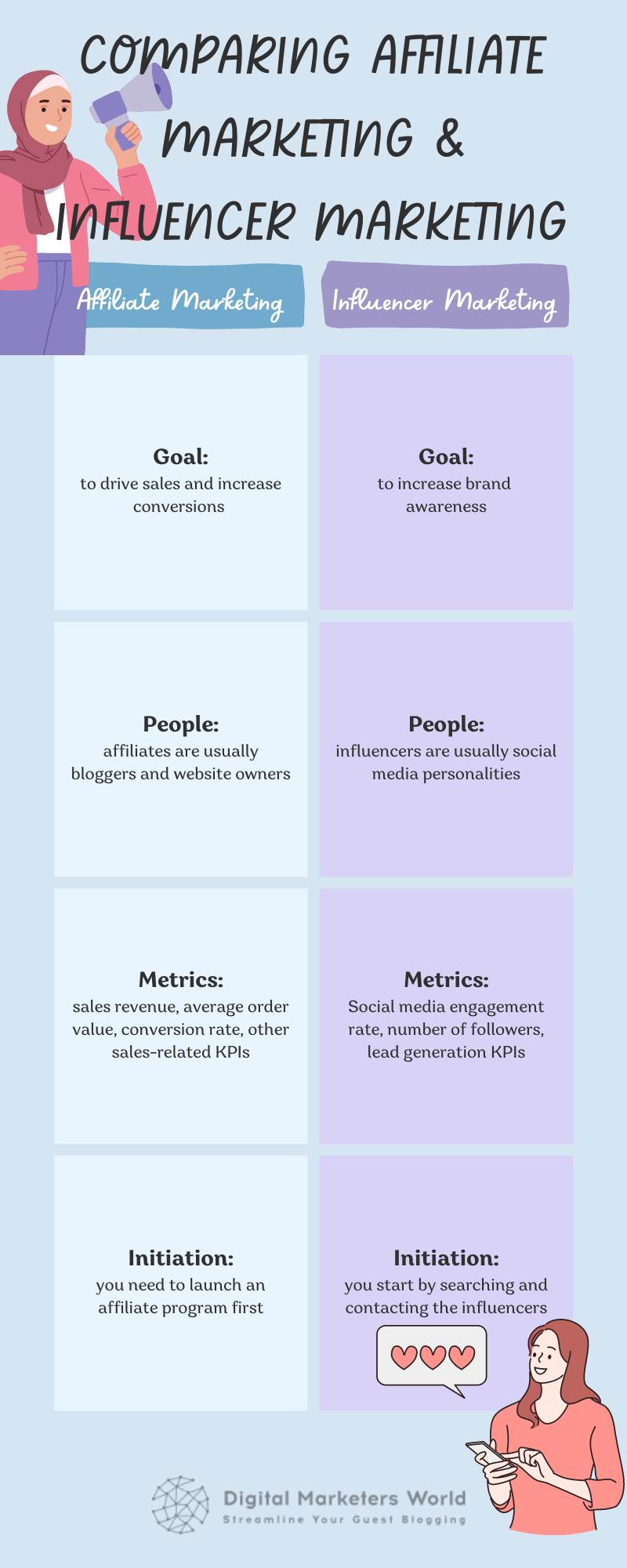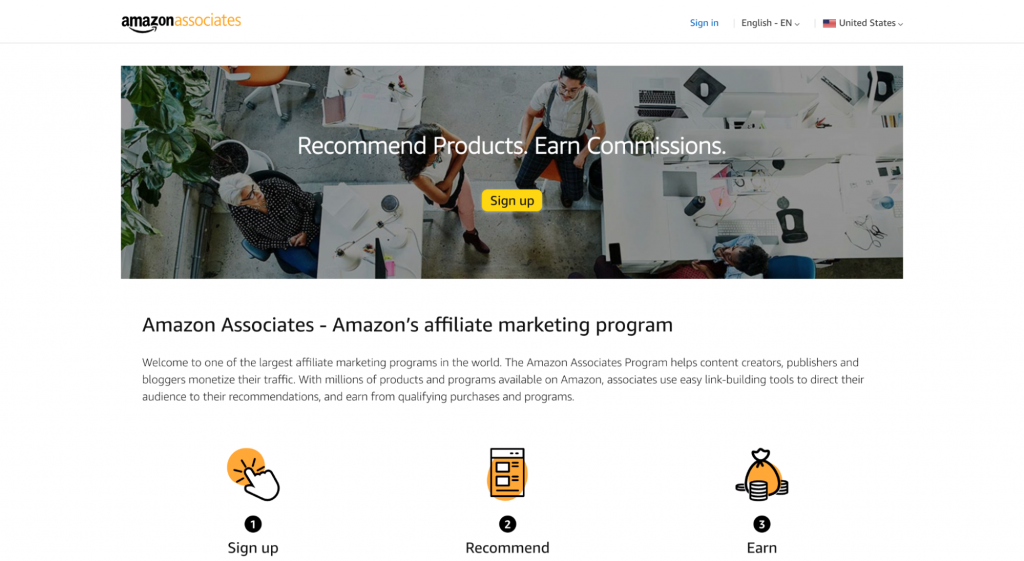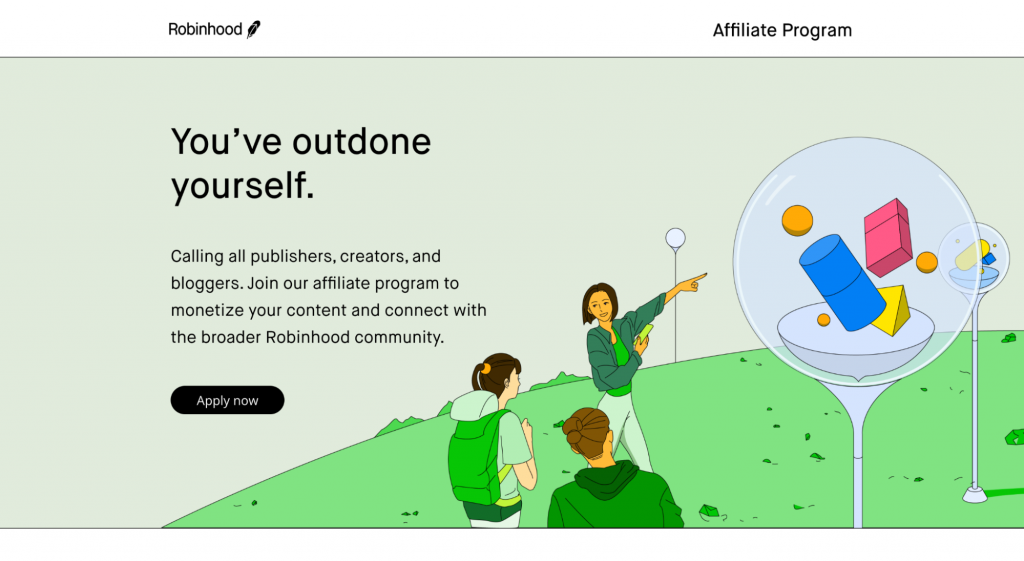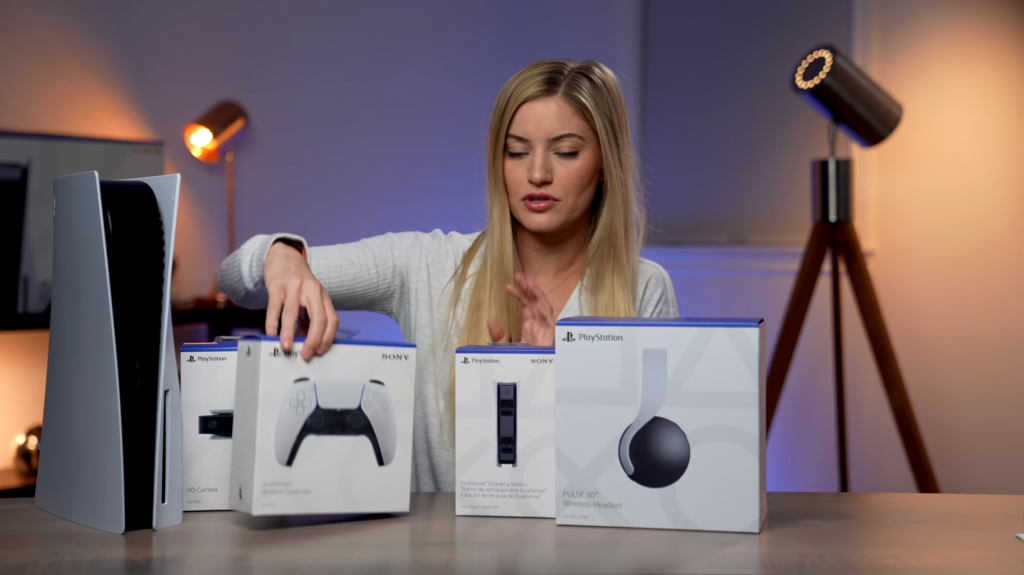Affiliate Marketing vs. Influencer Marketing [Full Comparison]
I wish there were a way for somebody else to handle my promotions for me.
Many of you have probably had this thought, right? You might also have heard that affiliate marketing and influencer marketing are strategies where others can help you promote your products.
But what are affiliate and influencer marketing about? What is the difference between them? We have a complete guide that covers both of these questions for you today and more.
What is Affiliate Marketing?
Affiliate marketing is a form of collaboration when the owners of media (websites, blogs, or social media platforms) promote and advertise the products of a brand and receive commissions as compensation.
Affiliate marketing is a win-win strategy for both sides as:
- Businesses get a chance to sell more products while remaining time and cost-effective.
- Media owners can monetize their site traffic and social media account followers.
It looks promising, but how exactly does affiliate marketing work? We have the answers to this up next.
How does affiliate marketing work?
Affiliate marketing is not complex at all – brands and affiliates can take several fairly straightforward steps to get this process going. Here is what it looks like:
- The brand creates an affiliate program that contains the rules for recruiting affiliates, payout timing, commission rates, and brand guidelines or promotion rules affiliates have to follow.
- Media owners apply for the affiliate marketing program and join as affiliates.
- Afterward, they select the product they want to promote and receive a link to the product containing their unique id.
- Affiliates then place this link in their content and start promoting it (via SEO, social media, email marketing, and other channels).
- When the customers click on this link, visit the brand’s website and make a purchase, the brand uses the unique id in the affiliate link to determine the affiliate marketer who referred the new customer and pay them a commission.
This is it. This process looks simpler than you thought, right? Now that you know how affiliate marketing works, let’s introduce the other one to you too.
What is Influencer Marketing?
Influencer marketing is the process of partnering up with social media influencers to create content that promotes your brand and posts it on their channels.
You can look at influencer marketing as the modern variant of traditional celebrity endorsements. In this case, however, brands work with social media personalities, and the endorsements appear on social networks instead of on print media or television.
In terms of the process, influencer marketing is quite simple, too. Let’s see what you need to do to get started with it.
How does influencer marketing work?
To launch an influencer marketing campaign, brands search social media channels for the influencers that fit their needs and contact them with a collaboration offer.
When the influencer expresses interest in working with the brand, they will start negotiating on the specifics of the campaign, such as:
- Timing and frequency. The campaign can be either a single post or a large series spanning several months.
- The promotion format. It can range from simple paid posts to unboxing videos or product reviews.
- Compensation. It can be in the form of a monetary payment or a free product sample as well as reward programs.
When all these details are clear, the influencers will start preparing your promotional content and post it on their channels.
After reading about affiliate marketing and influencer marketing, you might have a feeling that they are essentially the same thing, right? Well, not really. There are many differences between influencer and affiliate marketing, and we have them listed for you below.
Affiliate Marketing vs. Influencer Marketing: Differences
Although influencer and affiliate marketing seem very similar at first glance, they are entirely different tactics in terms of the goal they serve, the partners they target, and the metrics used for measuring their performance.
Here is an overview of the main differences between these two forms of marketing.

Now let’s check each one in detail.
- Different goals. The goal of affiliate marketing is almost always to drive sales and increase conversions. Influencer marketing, on the other hand, usually aims to increase brand awareness.
- Different people. Although the same person can be both an influencer and an affiliate, influencers are more commonly social media personalities, while affiliates are bloggers and website owners.
- Different metrics. For tracking affiliate performance, you use sales revenue, number of sign-ups, average order value, conversion rate, and other sales-related KPIs. With influencer marketing, your KPIs will be more related to social media marketing, such as social media engagement rate, number of followers, lead generation metrics, etc.
- Different initiation. To start with affiliate marketing, you need to launch an affiliate program, while starting with influencer marketing involves searching for and contacting influencers.
With the differences between affiliate and influencer marketing clear, let’s understand the pros and cons of each type.
Key Advantages and Disadvantages of Affiliate Marketing
There are no perfect marketing strategies or channels out there, as each one comes with its specific set of advantages and downsides and affiliate marketing is no different.
Let’s discuss the disadvantages and benefits of affiliate marketing and understand if it is worth adding to your marketing stack.
Affiliate marketing advantages
There’s low risk. By design, affiliate marketing is a relatively risk-free approach for both parties involved. In particular:
- Businesses do not risk spending lots of money on promotions with no results. They usually pay the commissions to affiliate marketers only after their referred customer has made a purchase.
- Affiliate marketers, on the other hand, do not face the risk of underperforming and missing sales targets as they do not commit to any goals and KPIs that the business has set.
Easy to set up. Another significant advantage of affiliate marketing is that, as a business, you do not have to spend significant time and resources on setting it up. There are lots of affiliate SaaS tools out there that can automate this process for you.
More customers. Finally, affiliate programs are an effective way of attracting more customers to your website and increasing sales revenue.
The reason is that your affiliate marketers know the interests and needs of their audience very well. Therefore, the affiliate marketing campaigns targeting their audience will be highly effective in terms of the number of sales-qualified leads that they refer to your website.
The benefits we listed here make affiliate marketing a very attractive option to try. But getting into it without any knowledge of its downsides can be dangerous. Therefore, let us discuss and understand the cons of affiliate marketing, too.
Affiliate marketing disadvantages
Can be slow. Building partnerships with affiliate marketers is a time-consuming process.
As you need to ensure that you are collaborating with the right affiliates with a relevant audience, you will end up screening and interviewing many candidates before deciding to collaborate with them.
Income inconsistency. It is usually hard for the business to predict the income they’ll get from their affiliate programs as they are not directly in charge of product promotions.
Despite these downsides, affiliate marketing still remains a valuable tool in the hands of businesses to increase sales revenue with little risk and effort.
With affiliate marketing covered, let’s move on to the pros and cons of influencer marketing.
Key Advantages and Disadvantages of Influencer Marketing
Influencer marketing is a rapidly growing discipline, with a 19% increase in market size in 2022 alone. As we are living in the age of social media and influencers (with an estimated 4-40 million of them on the internet), this channel seems very promising and valuable. But, just like its predecessor, it is not void of downsides.
Now, let’s understand influencer marketing a bit better by investigating its pros and cons.
Influencer marketing advantages
Niche-relevant. Although you might see some influencers with no specialization, most of them operate in a specific niche.
This is great news for businesses, as finding an influencer in your niche gets you access to a highly relevant and easy-to-target audience who are very likely to be interested in your products.
Influencers emit trust. People trust influencers. In fact, more than 90% of consumers will trust the promotion of an influencer more than a regular advertisement.
There are two reasons explaining this high level of trust:
- Authenticity: in their content, influencers usually share their personal experiences and opinions about a product instead of making pre-scripted advertisements. When followers see how the influencer uses that product in their daily life, it feels very authentic and trustworthy to them.
- Expertise: some of the influencers (also known as Key Opinion Leaders) are strong experts who have lots of knowledge in their niche. Thus, when they are recommending a product or service related to their area of expertise, people trust it as these influencers “know what they are talking about”.
It’s cost-versatile. Depending on the influencer type and size, the cost of hiring them can range widely from as little as $10 per paid post to several millions of dollars.
This wide range gives you a high level of versatility, as there is always an option that fits your pocket. For instance, if you are a small company with a limited budget, you can collaborate with nano-influencers, while large brands can afford to work with celebrities.
Judging from the benefits, influencer marketing seems like an exceptional channel for promoting your brand. But let’s not rush with our conclusions and look at its downsides too.
Influencer marketing disadvantages
Choosing an influencer is not easy. Like with affiliate marketing, building a network of influencers is no easy feat. The reason behind this is similar to that in affiliate marketing – finding the right influencer with a relevant audience involves a tedious process of filtering and interviewing lots of candidates.
Can carry risks. It is really easy to waste your budget with influencer marketing.
Unlike affiliate marketing, where you pay commissions based on the paying customers they have referred, influencers will charge the same amount per post or campaign, no matter if you got any leads from it or not.
Thus, if you choose an influencer with the wrong followers who do not care about your products, you will end up wasting your money.
To conclude, influencer marketing is a promising channel with precise targeting and a high level of trust, but you need to be careful with your choice of influencers, as it can easily drain your budget.
As we have a clear overview of the advantages and disadvantages of both marketing techniques, we can go forward and demonstrate examples from each that can help you start your next campaign.
3 Affiliate Marketing Examples
In case you have chosen the path of affiliate marketing and want to start your own program, here is a list of prominent affiliate programs from well-known brands that you can get inspired by.
Example #1: Amazon
Our first example is about the eCommerce giant Amazon and the massive affiliate program it has built.

Amazon calls its program Amazon Associates. It is among the largest and most popular affiliate programs out there, with over 200k websites using its affiliate links.
As an Amazon Associate, you get access to its vast library of products covering practically every niche.
Although you are free to choose the product you want to promote, you need to take into consideration that commissions will vary greatly depending on the product category. For instance, referring a customer that buys groceries will earn you 1%, while an “Amazon Games” buyer will get you 20%.
Example #2: Robinhood
Our second example is a prominent player in the financial industry that lets you invest and manage assets in cryptocurrency and stocks.

What sets Robinhood’s affiliate program apart from others is the list of perks and support you can get as an affiliate partner, including exclusive events and training for affiliates and special offers available only to affiliates.
Apart from these perks, you also get generous commissions for referring users to Robinhood. You can expect to get a flat fee of $5 per lead and $20 per funded account.
Example #3: Skillshare
The last affiliate program that we want to feature belongs to the educational platform Skillshare.

As a Skillshare affiliate, you can access its 30,000 courses and exclusive offers you can share with your audience.
In terms of the payouts, Skillshare will pay you 40% of the membership fee for each customer who becomes a paid user.
To draw conclusions from the examples above, great affiliate programs do not only pay generous commissions but also support their partner affiliates with exclusive discounts and training programs.
Now, with the affiliate examples behind us, let us move on to influencer marketing and see what it has to offer.
3 Influencer Marketing Examples
One of the lucrative sides of influencer marketing is its flexibility and creative freedom. There are no boundaries, and it is up to you and your partner influencer to decide on the format, design, timing, and payouts for your campaigns.
This freedom has helped brands and content creators make many beautiful and compelling social media posts, and we have a couple of them featured for you below.
Example #1: Dunkin’
Let’s begin with the American coffee and donut chain Dunkin’.
To increase the sales of their craft coffee, Dunkin’ created the #sippingisbelieving campaign, where different Instagram influencers featured Dunkin’ coffee in their content and promoted it.

Josh Moore, the guy in the picture above, was one of them. He is a micro-influencer specializing in food and lifestyle with a channel that has over 70k followers. In the post, we can see Josh drinking and praising the white chocolate latte, one of the craft beverages that Dunkin’ promoted with this campaign.
Example #2: Playstation
The following example takes us to the world of gaming with Sony and its PlayStation 5 console.
When Sony launched its brand new console back in 2020, it started actively collaborating with tech and gaming influencers to increase the awareness and hype for the PS5. These collaborations included everything from gaming demos to unboxings videos.

The example we want to feature is an unboxing video from YouTube influencer iJustine, who has over 7 million subscriptions on the platform. She was one of the lucky few who got early access to the whole PlayStation lineup, including its headphones and the camera.
Example #3: Calvin Klein
Our third example of a great influencer campaign comes from the fashion brand Calvin Klein.
Unlike the other two on our list, Calvin Klein took a more traditional approach to promotions by enlisting the help of celebrities to take part in its #MyCalvins campaign and posting the content on its own channel.

Here, we can see a post on Calvin Klein’s TikTok account featuring model and celebrity Kendall Jenner who talks about her hair while wearing Calvin Klein apparel.
To sum up, influencer marketing gives you a lot of creative freedom to make beautiful and engaging campaigns, and the examples above prove it.
As we are done with influencer marketing, too, we can move on to answering the main question that many of you might have – which one of the two types of marketing is better?
Affiliate Marketing vs. Influencer Marketing: Which is Better?
The short answer is that it depends on your campaign goals.
If you seek to increase sales revenue, you might want to consider affiliate marketing. On the other hand, if you’d like to increase your brand exposure and get your brand messaging out, you might need to employ the help of influencers instead.
It is actually common for many companies to end up with both influencer and affiliate marketing in their stack and use them in tandem.
Now Over to You
There is no real winner in the influencer marketing vs. affiliate marketing battle. Both are valuable and effective tools that digital marketing experts can add to their arsenal, and your choice between them (or using them both) will boil down to the marketing goals that you have now.
We have created a series of guides on affiliate and influencer marketing, and this comparison was part of it. To read more, check out our blog.

Sona Kalantaryan is a senior digital marketer with a creative past. Big fan of high cinema and well-optimized landing pages. She authors guides by sharing the best practices and does it the right way!
